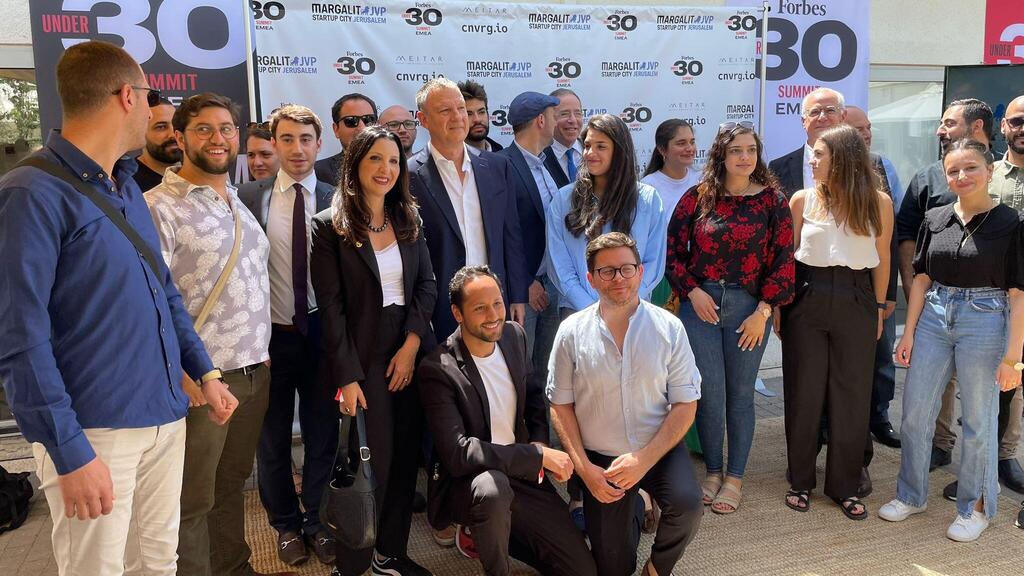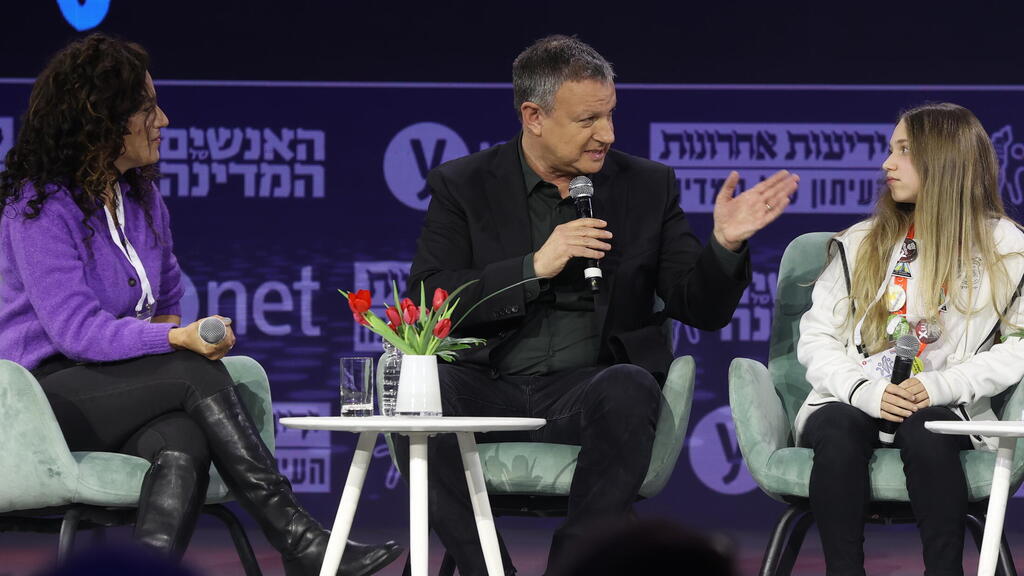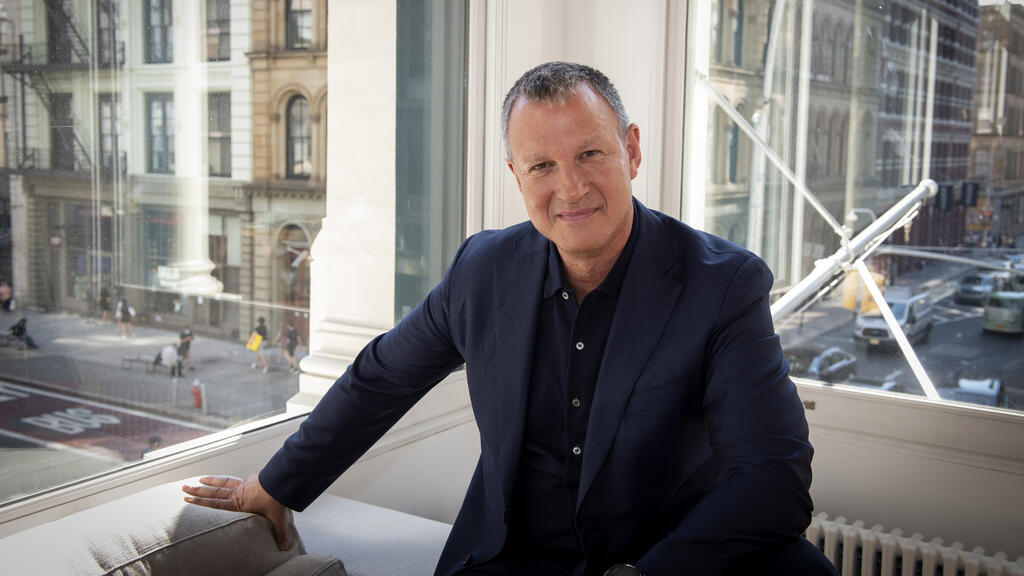The annual Forbes summit connecting entrepreneurs from Europe, the Middle East, and Africa was held this week in Israel for the fifth time.
The four-day Forbes 30 Summit EMEA gathered over 400 top young business people from 34 countries, including most of those on the Forbes Under 30 List, to learn, connect and create in Tel Aviv and Jerusalem.
The event also hosted many Israeli and Palestinian entrepreneurs, companies, and projects to share ideas, build bridges, and work to understand each other.
Thomas Nides, U.S. ambassador to Israel, said at the event, “The fact that many of you, who are successful young entrepreneurs, have come here to work with others and share your wisdom about your success, that is cool.”
He added that the only way for a two-state solution to work is to make sure that the Palestinians from the West Bank, east Jerusalem, and Gaza, have a sense of connection as entrepreneurs. “If we lose that, we lose everything,” Nides said.
Dr. Erel Margalit, founder and executive chairman of the Jerusalem Venture Partners international venture capital firm and of the Margalit Startup City creative campus, said, “The significance of today’s event is that we have both Israeli and Palestinian entrepreneurs working together.”
Jerusalem is seeing the region’s next chapter becoming a reality, he said.
We are doing this in Jerusalem, where you have many Arabs and Jews, Margalit continued. “When this is the city of diversity, when you have so many religious and secular people who are working together to open the next chapter in this region from the city of Jerusalem, that’s a big deal.”
Tomer Cohen is co-founder of Tech2Peace, which works to connect young Palestinian and Israeli leaders through high-tech, dialogue, and entrepreneurship training.
The group has been doing just that for more than three and a half years, he said. “We have over 350 Palestinian and Israeli alumni, many of them working together in various projects,” he added.
The seminars and events that Tech2Peace organizes change young Israelis’ and Palestinians’ perspectives, Cohen said. They teach them that everyone can be an entrepreneur and that they can see the people on the other side as potential business partners.
Tech2Peace’s goal is to have 1,500 Israeli and Palestinian alumni by 2025.
If the NGO achieves this, said Cohen, “we will have enough people in Ramallah, Bethlehem, Tel Aviv, and the various peripheral cities who will be invested in working with the other side and promoting better social and economic change by understanding the other side and working with it.”
Margalit said that for the last 20 years, “we have been working with the Arab community on educational projects with entrepreneurs. This is the place for cooperation; we have been doing this quietly.”
He said he doesn’t deny the problematic events, but that underneath, “there is a lot of cooperation, and many of us here in Jerusalem see the next chapter already happening.”
Zada Haj, CEO and co-founder of Abu Dhabi-based DANA Ventures, a startup accelerator, and an alumna of Tech2Peace, also attended the summit. She is a Palestinian Israeli who founded a venture capital company together with a Jewish Israeli and a Jewish American woman. DANA Ventures acts as an accelerator for women-led startups in the fields of agrotech, food tech, circular economy, and waste management.
“We focus on the sustainability aspect and a positive impact for the environment, and the MENA region where we help startups to scale up in the Middle East and North Africa and emerging markets,” she said.
Haj added that the company has startups in Gaza, Israel, the United Arab Emirates, Morocco, and Saudi Arabia.
The region, women’s leadership, and climate challenges, the issues where Dana Ventures is trying to make a difference, need strong companies to get that done, she said.
We believe in rhinos, not unicorns, Haj said, “because unicorns don’t exist, and in our region and our climate change crisis, we need very strong creatures and businesses, and this is what we believe in.”
“Rhino” is a British slang term for money; in business, a “unicorn” is a privately held startup company valued at over $1 billion.
She added that political conflicts won’t stop the company from continuing to unite entrepreneurs from different backgrounds.
DANA Ventures began working with its first cohort last May, when there was the 11-day conflict between Israel and Gaza, she said.
4 View gallery


Iron Dome activates in southern Israel as rockets are fired from northern Gaza during May 2021 war
(Photo: AFP)
To illustrate her point, Haj recalled, “One of the startups was from Gaza, and during the interview with them, Shirley [one of DANA Venture’s founders in Israel] told them: ‘Sorry, I have noise behind me.’ The other guy answered, ‘Sorry I have rockets behind me,’ and two days later, they signed with us.
“This shows that nothing will stop us from creating mutual collaboration and ventures and scaling up for the better of everyone,” Haj said.
Lina Zahayka, 25, is co-founder and CEO of Greeners, a Palestinian startup based in Jenin, in the West Bank, that uses carbon dioxide emissions to create eco-friendly sustainable fertilizers through a patented formula, in an effort to reshape the agriculture sector.
The Israeli-Palestinian conflict sometimes creates obstacles, Zahayka said. She mentioned the differences in culture and language, the logistics of getting in and out of the West Bank, and the political views that sometimes get in the way.
She added, however, that the company has two Israeli mentors who help to overcome these issues. Sometimes “we can’t prevent these political conflicts from coming out at the table. It happens here and there, but we’re not having any problems with it,” Zahayka said.
Margalit said that Saudi Arabia is “the next big thing in the region.” Israeli companies are already making their presence known in the kingdom, he said.
There are companies there selling cybersecurity products to banks, health care IT products to allow governments to better deal with the COVID-19 pandemic, water treatment facilities, alternate protein agriculture, and fintech products, Margalit noted.
The fact that Israel is working together with locals in a variety of Middle Eastern cities is creating a foundation for the next, diplomatic, phase, he said.
He said he likes it when business comes first, “when entrepreneurs come together, and the young entrepreneurs who are under 30, the nice thing about them, is they don’t see any obstacles, they think they can connect, and just like entrepreneurs around the world can connect, entrepreneurs in the region can connect and make a big difference,” Margalit said.
It prepares the ground for the politicians, he said.
Randall Lane, Forbes chief content officer and responsible for the Forbes Under 30 Summit EMEA, explained why he has chosen to hold it in Israel over and over again.
Obviously, he said, “the Startup Nation, Israel, is such an unbelievable country in terms of the startup energy, in terms of entrepreneurial energy.”
Therefore, Lane continued, “for several years we’ve been bringing the top young entrepreneurs from the Forbes Under 30 List to Tel Aviv and Jerusalem to just bathe in the entrepreneurial culture, and the history.”
Israel is a very good place to bring people to think about how to be even more entrepreneurial and to understand the challenges that entrepreneurs can help to create solutions for, he said.
“We’re trying to inspire people to go back and be more entrepreneurial,” Lane said. “The Startup Nation has a lot to teach the world.”




